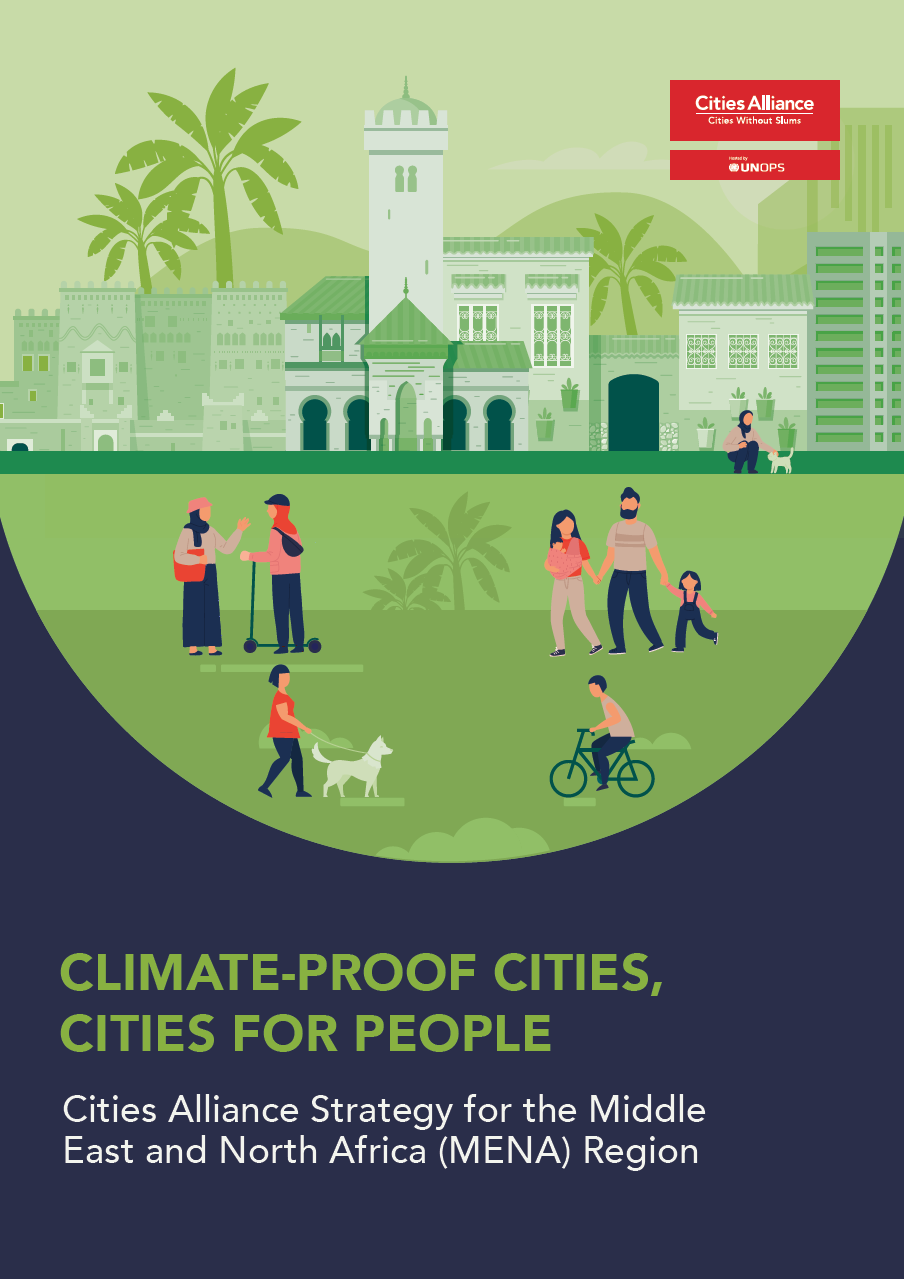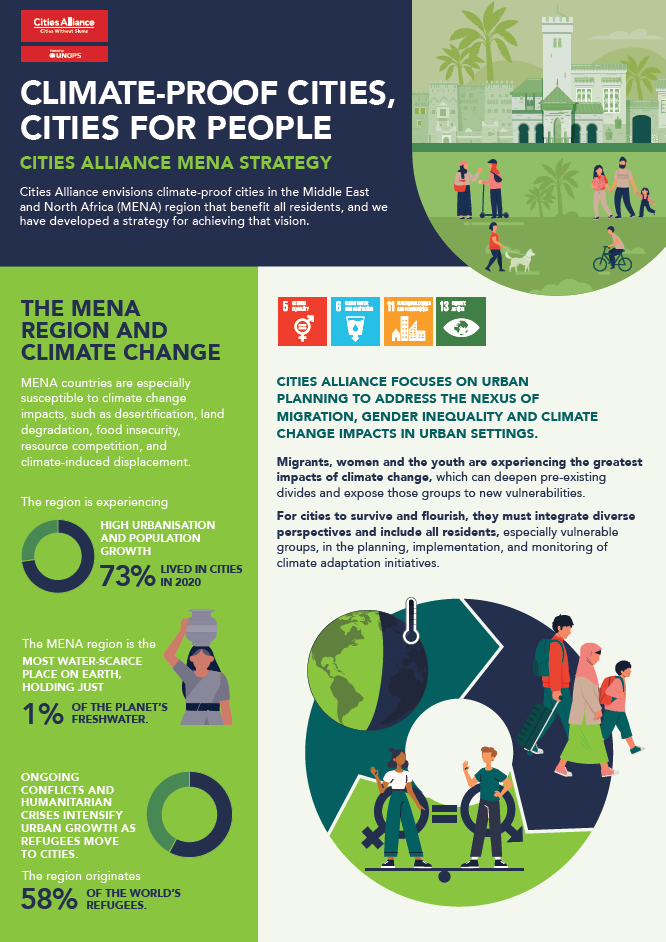- Who We Are
- How We Work
- Regional / Country Initiatives
- Legacy
- Core Themes
- Working Groups
- Portfolio & Results
- Newsroom
- Resources
Cities Alliance Strategy for the MENA Region


Climate change is one of the most significant global issues of the 21st century. Everyone feels its impacts, but they are not evenly distributed.
The Middle East and North Africa (MENA) region is particularly susceptible to the impacts of climate change. Cities across Jordan, Mauritania, Morocco, Tunisia, and beyond grapple with rising temperatures, irregular weather patterns, and dwindling resources.
Cities Alliance supports cities to deliver sustainable development and address urban poverty. It does so by promoting inclusive cities that engage all their residents – including women, children, and the elderly – and provide them with equal access to urban opportunities.
Cities Alliance has been active in the MENA region since 2000, addressing issues such as climate-resilient and gender-sensitive infrastructure, challenges related to migration, inclusive city planning and informal settlements upgrading, conflict-sensitive development, and innovative municipal financing.

The strategy is a response to climate challenges and a call to action to recognise the interdependence of urban resilience and inclusivity. It underscores the importance of building local capacity and empowering cities and communities to take ownership of their adaptation journey.
It also recognises the need to integrate diverse perspectives and commits to including all residents, including women and marginalised communities, in the planning, implementation, and monitoring of climate adaptation initiatives.
Inclusive adaptation is not merely a matter of ethical imperative; it is a strategic necessity.
This document outlines the climate change challenges in MENA cities, identifies the key actors and partners for an integrated and coherent response, and provides a roadmap for the Cities Alliance’s work on climate adaptation in the region.
